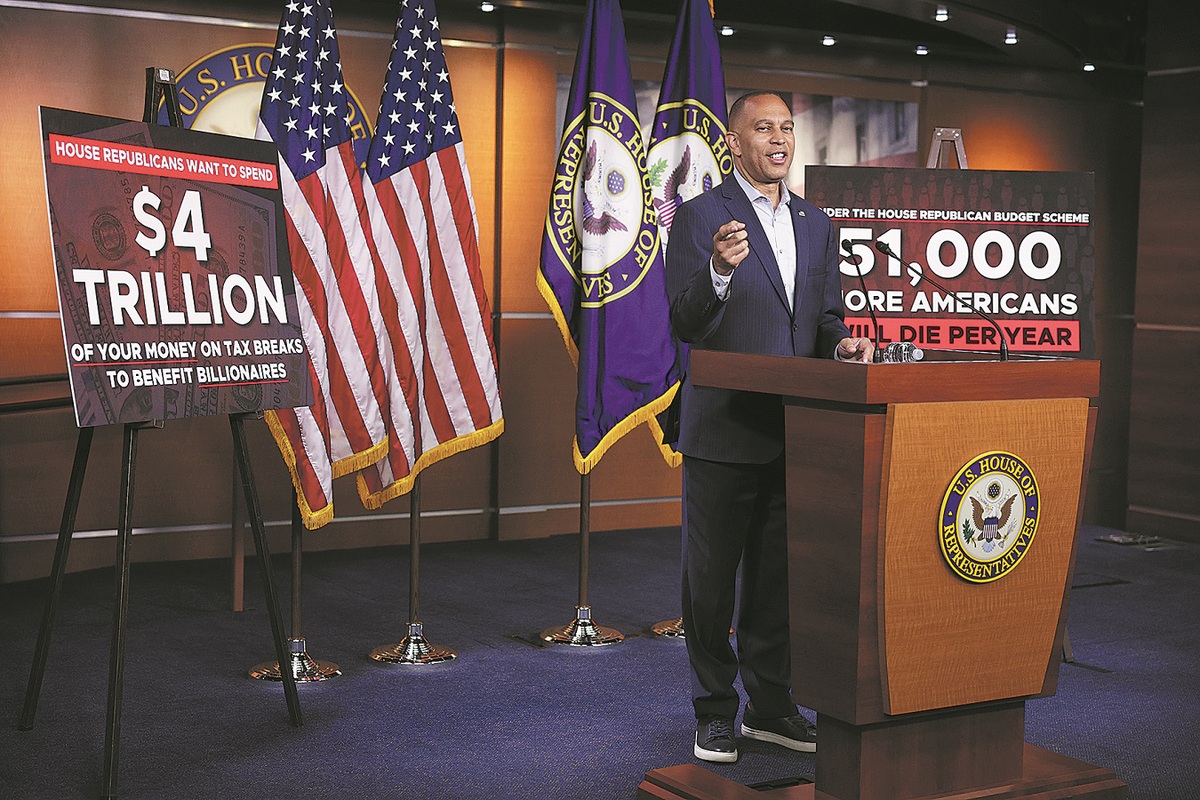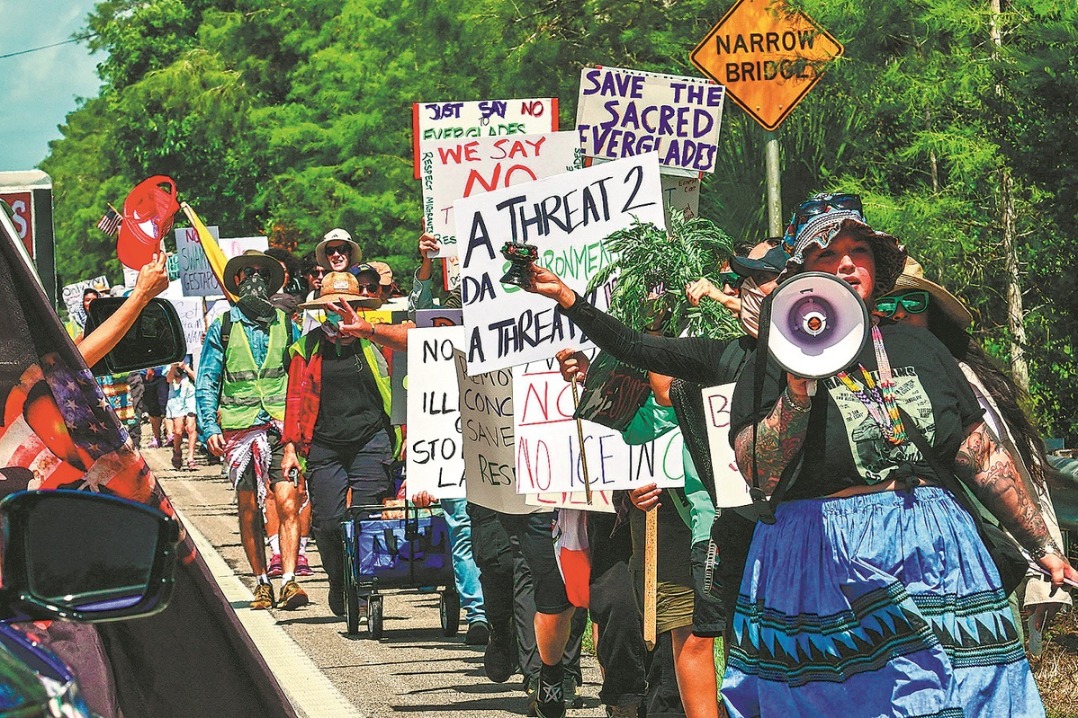United States' 'Big, Beautiful Bill' poised to affect millions of lives
Concerns expressed over wealth inequality, excessive border security, impact on healthcare, national debt


Healthcare 'weakened'
If passed, Trump's bill would end millions of US people's access to healthcare.
To qualify for Medicaid, recipients would be required to work, and face stricter eligibility scrutiny. The bill also limits the states' ability to tax medical providers to generate additional funding for the Medicaid program. In addition, it would become more difficult for individuals to enroll in and qualify for the Affordable Care Act, also known as Obamacare. Even those who do qualify are likely to face higher out-of-pocket costs.
About 83 million people are currently on Medicaid, according to KFF, a health policy research and news organization. Among those recipients, 37 percent aren't working due to various reasons, including attending school, caregiving, illness and disabilities, retirement, or inability to find work.
Even for those not on Medicaid or enrolled in Obamacare, the bill could still have an impact, experts said.
Owais Durrani, an emergency room doctor in Houston, Texas, said the bill will lead to over 55,000 preventable deaths every year. Not only because people won't be able to afford healthcare, but also because cuts to healthcare funding may lead to hospital closures, particularly in rural areas.
"These hospitals have been on the verge of tight finances for years, and this could be enough to shut them down," Jennifer Mensik Kennedy, president of the American Nurses Association, told ABC News. "If we have cuts to Medicaid, we're going to see these hospitals start to shutter their doors, and people are going to have to drive three, four hours to deliver a baby, to go have emergency care, to get seen, and that's got to be unacceptable to everyone."
However, the White House said that by "strengthening the integrity of Medicaid by eliminating waste, fraud, and abuse, its resources can be refocused on providing better care for those whom the program was designed to serve".
The bill will also take away health coverage for an abortion, further blocking access to reproductive rights, especially for low-income women. Planned Parenthood, the biggest nonprofit provider of reproductive health services in the US, called this a "sneaky attack".
"More than 90 percent of closures would occur in states where abortion is protected and legal. In 12 states alone, approximately 75 percent of abortion-providing Planned Parenthood health centers could close," it said.
Working class people will not only potentially lose access to healthcare but also food assistance, known as SNAP, with recipients having to show proof of work. One in 8 people in the US receives SNAP, with two-thirds of them children, the elderly, and people with disabilities, according to the Center on Budget and Policy Priorities.
"There's nothing beautiful about taking food away from kids and ripping healthcare from millions to give tax cuts to billionaires," said former US House speaker, Democrat Nancy Pelosi.
Sourabh Gupta, a senior fellow at the Institute for China-America Studies in Washington, said the bill's tax and spending provisions would provide a modest stimulus to medium-term growth as well as a short-term stimulus to the market. "These positives, though, are greatly outweighed by the longer-term fiscal costs and the inegalitarian distributional outcomes of the bill," he said.























